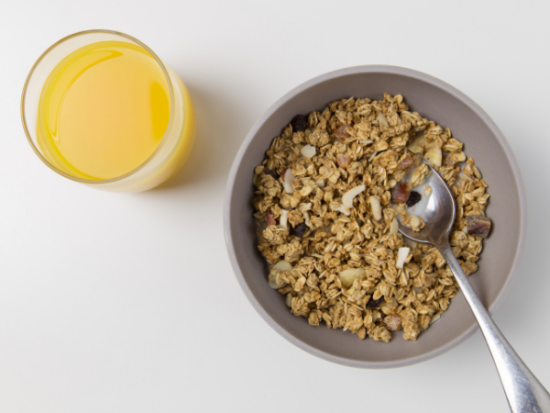What are net carbs and how can you calculate them?
Ever wondered what net carbs are and why you should care about them? If you’re on diets like the keto diet or low-carb, you may have heard the term once or twice. It could be considered a controversial topic in the health community. Some argue that there isn’t any difference between net carbs and just good old carbs.
Others say this isn’t accurate as components like fiber, sugar, and sugar alcohol are included under “carbohydrates” in the nutrition label when they shouldn’t be. When you’re doing a certain kind of diet, carbohydrates make up a big part of it — whether you’re eating it or avoiding it. Tracking your net carbs may help you achieve your goals with better results. Read more about net carbs and how to count them below.
The difference between carbs and net carbs

While the two are generally considered carbohydrates, there is a difference between net carbs and simple carbs. The former refers to digestible or impact carbs. The body absorbs them. Thus, it does not impact your glycemic index (blood sugar levels) or insulin resistance. Carbohydrates, on the other hand, are carb intakes that give you energy in the form of calories. This includes but is not limited to grains, starch, fibers, and sugar alcohols.
Is one better than the other? One can’t say that the main difference is the kinds of food considered simple carbs and net carbs. Foods rich in fiber and contain sugar alcohols can be subtracted when calculating net carbs, so even if you are on a diet, you can still consume a certain amount of these foods without affecting your blood sugar or calorie count for the day.
Why should you count your net carbs?
According to many health enthusiasts, when you’re on keto or low-carb diets, every gram of carbohydrates counts. Counting every gram of net carbs per day may be a more successful approach for those trying to lose weight. Low-carb diets may consist of more than 50 grams of carbs per day but are still under 200 grams. That’s still pretty restrictive, but net carbs allow some leeway into consuming additional healthy carbohydrates that won’t affect your daily limit.
Net carbs for keto-diet
Most ketogenic diet guidelines advise people who want to try out the diet to stay between 15 to 30g of net carbohydrates daily. This may or may not be equal to the total carbs depending on your calculations. This is a particularly low amount of carbs and calorie intake, especially for those who have gotten used to carbs as part of their daily diet. Health advisers say to start slow in cutting out carbs as cold turkey may harm more than good.
How to calculate net carbs
While the term “net carbs” isn’t universally agreed upon by nutrition experts, this hasn’t stopped health enthusiasts from wanting to know more about what it is and how it works. Due to the limited scientific studies that prove the nutritional value and difference of net carbs from total carbs, calculating can often be confusing at best and misleading at worst.
The net carbs listed in some food products may not be accurate as not every food belonging to a certain classification is considered net carbs. However, net carbs are generally easy to track if you determine the kinds of food that belong to this group. There’s a basic two-step formula: determine the total carb content and then subtract the dietary fiber.
Determine the total carb content of your food
Nutrition labels list down the net weight of total carbs in grams. The same with the total grams of fiber, sugar, fats, sodium, and other nutritional values. Note that the total grams of carbohydrates in food labels may or may not include ingredients with net carbs, but just the total carbohydrates present in one serving size.
Subtract the dietary fiber
The next and most important step is to know the net weight of the dietary fibers and sugar alcohol present in the food. The amount you get is the total net carb of your meal or snack. Subtract this total weight from the total carbohydrates. Note that the net carbs will always be less or equal to the total carbs. Otherwise, you’re calculating it wrong.
What are the pros and cons of counting your daily net carbs?
Total net carbs have a bunch of pros. The one pro that has made it so popular among dieters is its less restrictive food choices. When you count net carbs instead of total carbs, you can increase your food intake with dietary fibers and sugar alcohols without affecting your glucose levels or carb foods intake for the day.
One con that often comes up is that calculating net carbs isn’t always accurate. Fiber and sugar alcohols affect individual responses differently. Plus, not all food labels list down these components, so they can be hard to calculate unless you ask the manufacturer directly. This can cause you to limit the food you eat to only those with direct labels of total carbohydrates, fibers, and sugar alcohols.
Can dietary fibers cancel out carbs?
Fiber is often called the digestible carb because it works and affects the body differently than other types of carbohydrates. Unlike starch and sugar, fibers aren’t absorption by your small intestines but instead directly pass to the colon. Soluble fiber is the one that you should try to consume more because it can slow down food movement and make you feel more full.
It also allows for softer bowel movements because it dissolves in water and is easily digestible. Luckily, most of the food rich in fibers have the soluble kind. If you need to up your fiber intake, opt for high-fiber foods like wholegrain cereal, nuts, granola, fruits, and vegetables. Fiber has also been able to help in weight loss.
Related Articles
Summary
The hot topic of whether it is better to count total or net carbs isn’t to be settled soon, especially with the lack of funding for more research and clinical trials. However, knowing the difference between the two might help you determine which would work better for you if you are carb-counting daily. Net carbs will allow you more food choices without feeling guilty, but if you find it less effective, you can always switch back to counting total carbs.
The bottom line when doing low-carb diets? Extremes are never good. Extremely low carbohydrates without the proper substitute or precautions can cause serious side effects or medical complications. Always leave room for health experts’ advice to keep your health in optimal condition. When unsure, it is always best to check with your healthcare provider or a licensed nutritionist before making any major changes to your diet.





